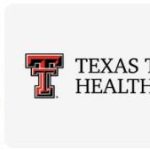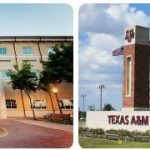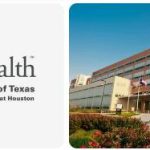The University of Texas Medical Branch at Galveston was established in 1891 as the first public medical school in the state. It was founded as the University of Texas Medical Department, and its mission was to provide quality medical education, research, and health care to Texans. In 1908, it became a separate entity from the University of Texas and was renamed the University of Texas Medical Branch. Over time, UTMB has grown from its original two-year program to include five schools that offer programs in medicine, nursing, biomedical sciences, health professions, and graduate studies. UTMB also has a large hospital system that includes four major hospitals in Galveston and one in League City. In addition to providing patient care services, UTMB is dedicated to advancing medical knowledge through research and clinical trials. Its researchers have made significant contributions to fields such as infectious diseases, trauma care, cancer treatment, transplants and genetics. UTMB has also been a leader in healthcare innovation with groundbreaking work on telemedicine technology that allows doctors to remotely diagnose patients over long distances. The school’s commitment to excellence has earned it numerous accolades throughout its history including being named one of the top 10 medical schools in the United States by U.S News & World Report for four consecutive years beginning in 2016.
University of Texas Medical Branch–Galveston, abbreviated as UTMB, is one of the top-ranked U.S. medical schools located in Galveston, TX. Keep reading to see admissions application information including average GRE scores, admissions selection factors and dual degree programs of University of Texas Medical Branch–Galveston.
301 University Boulevard
Galveston, TX 77555-0133
(409) 772-6958
Admissions E-mail: lauthoma@utmb.edu
Web site: http://www.utmb.edu/somstudentaffairs
Electronic application: https://www.utsystem.edu/tmdsas
Latest profile:
Fall 2008 Admissions Information
AMCAS application accepted? No
Earliest application date: 06/01
Application deadline: N/A
Oldest MCAT considered: 2003
Application fee: N/A
Director of admissions: Dr. Lauree Thomas
Does this school ask for a secondary application as part of the admissions process? No
This school requires undergraduate work in these subjects in order to apply: biology, English, organic chemistry, inorganic (general) chemistry, physics, calculus
Is a personal interview required for admission? Yes
Are interviews conducted at the medical school? Yes
Acceptance notice to regular application for the 2007-2008 first-year class:
-Earliest date: November 15
-Latest date: August 15
Applicant’s response to acceptance offer for the 2007-2008 first-year class:
-Maximum time in weeks: 2 weeks
-Does the school consider requests for deferred entrance? Yes
-Deposit to hold place in class: None
-Deposit due: N/A
-Deposit refundable prior to: N/A
-Starting month for the class of 2007-2008: August
Early Decision Plan application period for the 2007-2008 first-year class:
-Does the school have an Early Decision Plan (EDP)? No
-EDP application period begins: N/A
-EDP application period ends: N/A
-EDP applicants notified by: N/A
Fall 2005 Admissions Statistics
The University of Texas Medical Branch (UTMB) in Galveston is a highly competitive medical school. Since its founding in 1891, UTMB has become one of the top medical schools in the nation. In 2020, UTMB received over 9,000 applications and accepted 1,500 students into their Doctor of Medicine program. The overall acceptance rate was 16.7%, making it one of the most selective medical schools in the country. Furthermore, UTMB has a strong commitment to diversity and inclusion. In 2020, 36% of total applicants were from underrepresented minority groups and 53% were female applicants. Additionally, 15% of matriculated students were international students from 31 different countries around the world.
The incoming class is comprised of highly qualified individuals with an average undergraduate GPA of 3.78 and MCAT score of 512. Additionally, 96% of incoming students had some form of clinical experience prior to matriculation such as shadowing physicians or working as an EMT or nurse’s assistant. This indicates that UTMB values not only academic excellence but also experience and leadership qualities that will help prepare future doctors for success both inside and outside the classroom.
| Applied | Interviewed | Accepted | Enrolled | |
| Total: | 3,441 | 927 | 292 | 228 |
| In-state: | 2,904 | 840 | 260 | 214 |
| Out-of-state: | 537 | 87 | 32 | 14 |
| Women: | 1,686 | 443 | 142 | 112 |
| Minorities: | 1,540 | 223 | 125 | 97 |
| International: | 44 | 6 | 1 | 0 |
Acceptance rate: 8.5%
GPA
Average undergraduate GPA: 3.76
MCAT
Overall score (composite): 9.6
Verbal reasoning: 9.4
Physical sciences: 9.4
Biological: 10.0
Writing: P
Undergraduate Majors
Biological sciences (biology, microbiology, zoology, etc.): 64%
Physical sciences (biochemistry, chemistry, engineering, etc.): 12%
Non-sciences (sociology, economics, English, etc.): 16%
Other health professions (nursing, pharmacy, etc.): 8%
Mixed disciplines and other: N/A
|
Combined Degree Programs
Combined degree programs offered: M.D./Ph.D.
Does the school have a combined college/M.D. program? No
Number of years to complete combined college/M.D. program: N/A
Web site for combined college/M.D. program: www.utmb.edu/mdphd
Selection Factors
Details on the policies, preferences, criteria, factors and procedures used in the M.D. admission process:
(Data appear as originally submitted by this school)
Members of the Admissions committee are responsible for the admission of students. Applicants are considered on the recommendation of health profession advisers, personal qualifications, academic profile, undergraduate coursework, grades, and MCAT scores. Also included are interpersonal skills, oral and bilingual communication skills, and unique educational, career, or life experiences.








